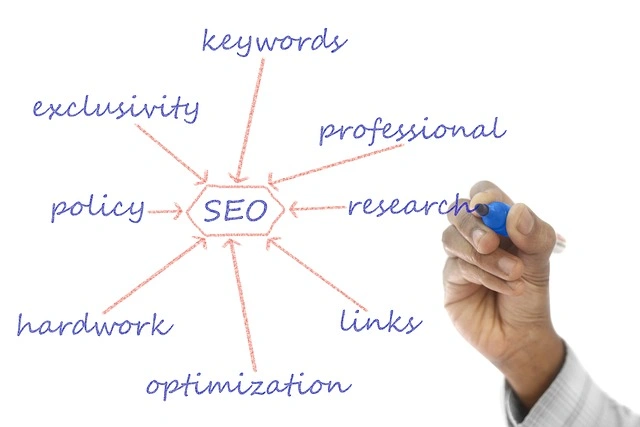
SEARCH ENGINE OPTIMIZATION (SEO) IN 2025
SEARCH ENGINE OPTIMIZATION (SEO) IN 2025: NAVIGATING THE FUTURE OF DIGITAL VISIBILITY
In the ever-evolving world of digital marketing, Search Engine Optimization (SEO) remains one of the most important strategies for driving organic traffic to websites. SEO is the process of optimizing a website or digital content to rank higher in search engine results, ensuring that businesses and content creators can be discovered by potential customers or audiences. Over the years, SEO has undergone significant changes, influenced by technological advancements, changing user behaviors, and evolving search engine algorithms. As we look ahead to 2025, it is clear that SEO will continue to evolve, and understanding these changes is essential for anyone looking to stay ahead of the curve.
In this article, we will explore what SEO will look like in 2025, focusing on emerging trends, technologies, and strategies that will define the future of SEO. From the increasing importance of artificial intelligence (AI) and voice search to the growing role of user experience and semantic search, this piece will provide a comprehensive overview of what businesses and marketers need to know to succeed in the next era of SEO.
The Evolution of SEO: A Brief Overview
Before diving into what SEO will look like in 2025, it’s important to understand how SEO has evolved over time. Early on, SEO was primarily about optimizing keywords to rank higher in search engine results pages (SERPs). Webmasters stuffed pages with keywords, relying on techniques such as link farming and hidden text to manipulate search engine algorithms. However, as search engines like Google became more sophisticated, their algorithms evolved to prioritize the quality and relevance of content over simple keyword optimization.
Over the years, SEO strategies have shifted to focus on user intent, content quality, and on-page and off-page factors. Google, for example, introduced algorithm updates like Panda, Penguin, and RankBrain, which pushed SEO toward a more holistic, user-focused approach. By 2025, SEO is expected to be even more advanced, with new technologies, user behaviors, and algorithms reshaping the digital landscape.

The Rise of Artificial Intelligence and Machine Learning
One of the most significant trends shaping SEO in 2025 will be the role of artificial intelligence (AI) and machine learning. AI-powered technologies are already a part of SEO today, but their influence is expected to deepen significantly in the coming years.
1. AI-Powered Search Algorithms
Google has already integrated AI into its search algorithms, with systems like RankBrain and BERT (Bidirectional Encoder Representations from Transformers) making it more adept at understanding user intent and context. By 2025, AI will likely play an even larger role in refining search algorithms, making them more intuitive and capable of delivering more accurate, contextually relevant results.
Search engines will increasingly rely on AI to better understand content and the context in which it is presented. This means that SEO strategies will need to focus more on creating content that answers specific user queries in a meaningful way. Keyword optimization alone will not be enough to rank well; instead, the emphasis will be on comprehensive, well-structured content that is clearly aligned with the search intent of the audience.
2. AI Content Creation and Optimization
In addition to influencing search algorithms, AI will also play a role in content creation and optimization. By 2025, AI tools like GPT-3 and other natural language processing (NLP) technologies will be widely used to generate high-quality content at scale. These tools will assist marketers and content creators in producing articles, blog posts, and product descriptions that are optimized for SEO.
AI-driven content tools will be able to suggest keywords, phrases, and even entire paragraphs that are likely to rank well based on current trends and search patterns. Additionally, AI will help in optimizing existing content by recommending improvements to structure, tone, and keyword usage to enhance performance in search rankings.
The Continued Growth of Voice Search
Voice search is another key trend that will shape SEO in 2025. As virtual assistants like Amazon Alexa, Google Assistant, and Apple Siri become more ingrained in our daily lives, voice search is expected to play an even larger role in how people interact with search engines. According to some estimates, voice searches could account for up to 50% of all searches by 2025.
1. Optimizing for Conversational Queries
Voice search tends to be more conversational and natural in tone compared to text-based search. For example, someone might type “best restaurants in New York” into Google, but they are more likely to ask, “What are the best restaurants near me?” or “Where can I find Italian food in New York?” in a voice search.
To adapt to this shift, SEO strategies will need to focus on optimizing content for long-tail, conversational queries. Marketers will need to prioritize natural language, question-based content, and structured data (such as FAQs) to increase their chances of being featured in voice search results.
2. Local SEO and Voice Search
Voice searches often have a strong local intent. Users frequently ask their virtual assistants for directions, restaurant recommendations, or nearby services. This means that local SEO will become even more important by 2025. Businesses will need to ensure their Google My Business profiles are complete and accurate, focus on gathering positive customer reviews, and optimize their websites for local search terms.
In 2025, local SEO will become increasingly crucial for businesses that want to capture traffic from voice search, and those that do not optimize for local queries may risk losing out on a large segment of potential customers.
The Importance of User Experience (UX) and Core Web Vitals
User experience (UX) has been an essential ranking factor for several years, but by 2025, it will be even more important as search engines continue to prioritize delivering the best experiences to users. Google’s Core Web Vitals update, which evaluates a site’s performance based on factors like loading speed, interactivity, and visual stability, is just the beginning of a broader shift toward user-centered ranking factors.
1. Page Speed and Mobile Optimization
As mobile usage continues to dominate internet browsing, ensuring that websites are optimized for mobile devices will be paramount. By 2025, mobile-first indexing will likely be the default for all websites, meaning that Google will prioritize the mobile version of a website when determining rankings.
Page speed will also remain a critical factor. Websites that take too long to load will see a drop in rankings, particularly as more users access the internet via mobile networks with varying speeds. Marketers will need to focus on optimizing their websites for speed by compressing images, reducing JavaScript, and utilizing faster hosting solutions.
2. Engagement Metrics
Google has been gradually incorporating user engagement metrics into its ranking algorithms. Metrics like click-through rates (CTR), bounce rates, time spent on page, and interactions with content are all indicators of a website’s quality and user satisfaction.
In 2025, user engagement will be even more closely linked to SEO success. Websites that keep visitors engaged, provide easy navigation, and offer interactive content (such as videos, polls, or live chats) will be more likely to rank higher than those that fail to capture user interest.

The Role of Structured Data and Semantic Search
In 2025, structured data and semantic search will play an even larger role in SEO. Structured data, often implemented through Schema Markup, provides search engines with additional context about a webpage’s content, helping search engines better understand and categorize the information.
1. Enhanced Rich Snippets
As search engines become better at understanding the context and meaning of content, the use of structured data will become increasingly important. Websites that implement structured data will be more likely to appear in enhanced rich snippets, which are visually appealing search results that include additional information such as ratings, images, or event details. Rich snippets can greatly increase click-through rates and organic traffic.
By 2025, it is expected that more websites will adopt structured data to improve their visibility in search results, particularly for product pages, reviews, recipes, and local businesses.
2. Semantic Search and Content Relevance
Semantic search is the process by which search engines aim to understand the meaning behind the words in a search query rather than just matching keywords. Google’s Hummingbird and BERT algorithms are examples of semantic search technologies that have already had a significant impact on how search engines understand content.
By 2025, semantic search will be even more advanced, allowing search engines to prioritize context and relevance over simple keyword matches. Content creators will need to focus on delivering comprehensive, well-researched, and contextually rich content to rank highly for relevant queries. SEO strategies will need to shift away from keyword stuffing and toward creating content that fully answers user queries in a meaningful way.
Video SEO and Visual Content
With the increasing consumption of video content across platforms like YouTube, Instagram, and TikTok, optimizing video content for search engines will be even more crucial in 2025. Video SEO will be an integral part of any comprehensive SEO strategy, and marketers will need to optimize videos for search engines to ensure that they are discoverable.
1. Optimizing Video for Search
Optimizing video content involves several steps, including using relevant keywords in titles, descriptions, and tags, creating compelling thumbnails, and utilizing closed captions. By 2025, we can expect more advanced techniques for optimizing video content, including AI-powered tools that help automatically generate metadata and captions.
Additionally, integrating videos into website content and ensuring they are mobile-optimized will be crucial for ranking well in search engines. Video content is expected to become an even more dominant format for delivering content in 2025, and businesses and content creators that optimize for video SEO will have a competitive advantage.
Conclusion
SEO in 2025 will be shaped by a combination of new technologies, evolving search engine algorithms, and changing user behaviors. As AI, machine learning, and voice search continue to transform the way people search for information, businesses and marketers must adapt their SEO strategies to stay competitive. Focusing on user experience, optimizing for voice search, implementing structured data, and embracing the growing importance of video content will be key to succeeding in this new era of SEO.
Ultimately, SEO in 2025 will be less about manipulating algorithms and more about providing value to users. Websites that prioritize quality, relevance, and user satisfaction will continue to dominate search engine rankings, while those that rely on outdated tactics will fall behind. By staying ahead of these trends and embracing the future of SEO, businesses can ensure that they remain visible and competitive in the increasingly crowded digital landscape.









